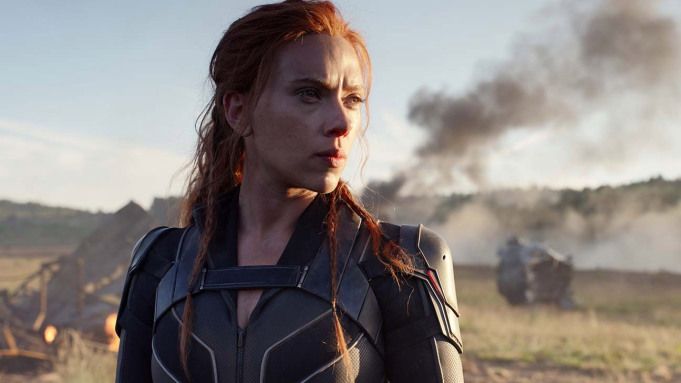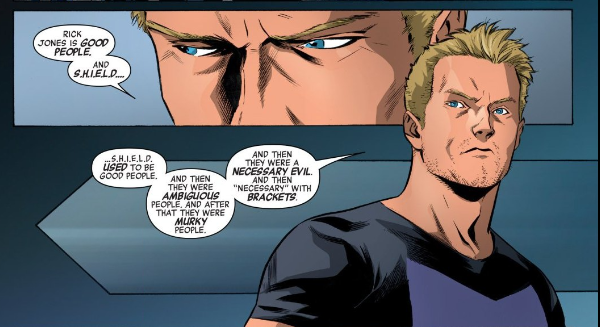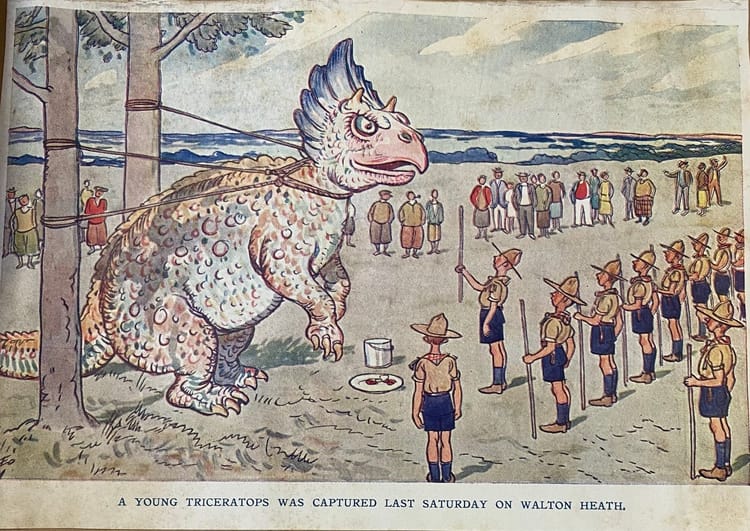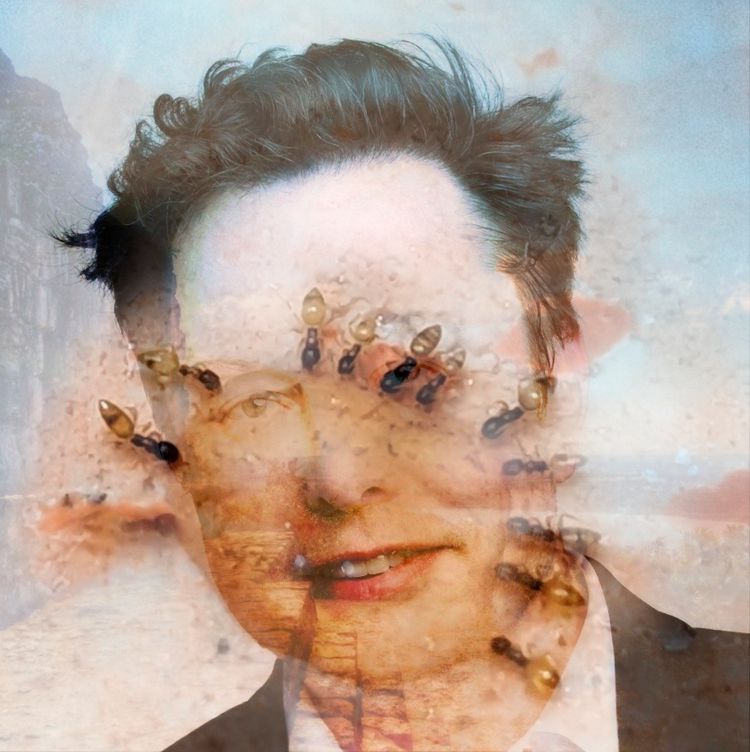Widow Stories

It’s a bracing experience to see one of the formative creative experiences of one’s life acted out by Alec Baldwin and Christian Slater.
In 2013, when Saul was 25, he published a long story in the Texas Observer about the bloody legacy of Dr. Christopher Duntsch, a Dallas-area spine surgeon who killed and maimed his way across three Dallas hospitals. Each of which — when made aware of his dangerous if not malevolent incompetence — passed him, carefully-worded letter of recommendation in hand, on to someone else.
Now that story is a miniseries, “Dr. Death,” for NBC’s Peacock streaming series which is forced, by nature of the material (and the structure of the story, laid out by Saul in 2013 and never really challenged) to confront not just what happened — Duntsch’s crimes, and how he was laboriously stopped from continuing them — but the much more troubling questions of “why he was so bad” or “how did he keep doing them for so long.”
Welcome to Heat Death, a newsletter that checks the stories your brain is running on and advises whether they still serve you. Late July finds Asher churning out various short pieces for Texas Highways and Texas Monthly, and glorying in having done the previously unimaginable: convinced a bearded dragon to walk on a leash.
Which, it turned out, was easy: while some bearded dragons require careful habituation to the harness, Arroyo, Asher’s cromulent little beast, took to it with gusto, scampering around his house and immediately proceeding — leash in trail — to the nearest dark corner, as is her wont.

Saul, meanwhile, is in Washington, D.C, where he recently published a review and critique of Peacock’s “Dr. Death" in Texas Monthly, whose headline argues that the focus on the extraordinary and titillating case of Dr. Dutsch distracts from the true dangers in the Texas medical system. He finishes:
I was left with the uncomfortable feeling that my own reporting nearly a decade ago helped establish this framing. In the Texas Observer story, I compared Duntsch to a hundred-year storm that swamps a seawall. But after watching Dr. Death, I think I chose the wrong analogy, because it suggests that the danger is the category 5 hurricane—the singular bad doctor—and not the rising floodwaters we’re already wading through: in-network hospitals that put unwitting patients under the scalpels of out-of-network surgeons who charge astronomical fees; the ever-growing administrative burden that makes doctors and nurses watch screens and not your face. Or the possibility (too humdrum to be worth a dramatic miniseries) that you will receive lackluster and substandard care from a bloated, profit-maximizing system. American health care conscripts nurses and doctors—not just bad apples like Duntsch, but great ones too—into a machine that treats human lives as a resource to be mined for shareholder profit. That’s the real horror story here.
Like Saul’s original piece, “Dr. Death” tries to make the case of Dr. Duntsch into commentary on the larger systemic rot in the Texas medical-regulatory system that had made his case possible — and it tries to do so through the usual interplay of one villain and a few plucky heroes. But While it was the legal system and a few crusading doctors that finally stopped Duntsch’s practice by putting him in prison, the story isn’t a legal or medical thriller. It’s a profound ideological challenge to the way things are supposed to work in this country. Duntsch assaulted not only on his patients but the broader system of meaning in our vaguely socially-democratic country: one in which all but the most rabid libertarians take for granted that someone should have stopped him.
Watch 4 hours of Alec Baldwin stomping around mockups of Dallas-area medical establishments, giving impassioned “Sir have you no decency” speeches to people who respond with the stoic blankness of bank tellers — and it’s hard not realize a tension in the story-first journalistic approach we were both raised with. After all, it demands good stories, which means cases with obvious emotional stakes, engaging characters, a neat plot triangle and, ideally, a cathartic courtroom scene.
But you can't extrapolate a society out of its most dramatic stories. You can tell a good yarn, and maybe that will have a pathos or gravity that touches the universal. But it leaves out all the lives (like most of ours) whose struggles are more humdrum, and which nevertheless in sum make up an age. It reduces those who crossed paths with Duntsch to helpless victims of a monster — as opposed to being aggrieved citizens of this Republic, who finally, somewhat miraculously, clamored for change and got it.
Stories matter, because they are the deep metaphors by which the meaning is surreptitiously translated — or, using such metaphoric schemes, we might say: downloaded, grafted, ported over — onto the broader culture.
For anyone interested in culture, and particularly the peculiar warmed-over quality that interests us at Heat Death, there is no better example of how this works, as a hegemonic force — which is to say, one that is mainstream, largely uncontested — than Disney, which has become a cultural juggernaut to end all cultural juggernauts, with bought-and-paid-for proprietary control of much of the (once independent) media landscape we grew up with.
That has made it, in critiques from both left and right, a stand-in for a vague “woke capital” version of liberal interventionism which offers, for example, full racial and gender equality among drone pilots. But this is deceptive. Beneath this glassy surface, the culture’s deeper currents roil and squirm.
Given the weight of that property and given that the stories they tell are weaving themselves, subtly, down into the very brainstems of new generations of kids (as well, of course, as reaffirming their holds on the ones who used to watch them, which is virtually every American alive and a great deal of non-Americans as well) we’re doing a close read of how America’s cultural obsessions get worked out through the powerhouse of the Marvel Cinematic Universe.
This week Saul considers Marvel's Black Widow — part of the most utopian/dystopian system of mass-art around — and the ways that America works out its Cold War baggage through fake Russians. Meanwhile, Asher addresses something about the Marvel television experiment that’s been bothering him: what are these things about, anyway?
It’s Heat Death. Stay with us.

Cinema Russians
This essay contains a frank discussion of the plot of Black Widow and includes spoilers.
Saul here. Here at the DC Soviet, I have been thinking about cinematic Russians. You know the ones: tracksuit Russians. Sexpot Russians. Uniformed Russians. Rumbling, growling, purring, r-rolling Russians. One of the few cultural groups that it is still considered perfectly respectable to ruthlessly paint with the most broad and offensive stereotypes.
A typical example appears in the film Tenet: the villain is a squat, thuggish Russian mafioso, who emotionally abuses, stalks, and occasionally beats up the elegant Elizabeth Debicki. He is cartoonishly, indiscriminately violent: he tells Protagonist (John David Washingtonr) that he is going to murder him by chopping off his balls and stuffing them down his throat.
It is an absurd thing to say — it requires his accent to sell it, as a metatextual clue that well, you know. Those Russians. They’re like that.
Now that I am entangled in a Russian family made up entirely of university scientists and techies — I am left with an important question about this awful specimen: why did this character have to be written as Russian?
Let's leave aside all the representation questions and whether this sort of thing is harmful to Russian immigrants or nationals. (Let's acknowledge, too, an X factor: that Russian is a fun accent to do — all those sensuous vowels, kohmraaaad.) Instead, let’s dig into what this might points to: the aftermath of the Cold War on the American psyche. Let’s talk about Black Widow.
The film starts with an act of violation. It's the mid-1980s — the last days (though no one knew it) of the Cold War. Natasha is a troubled gangly tween with dyed green hair and an annoying little sister, Yelena, a cherubic blond 6 year old who spends her first scene in a princess outfit. Her parents are researchers at a secret government facility and — as the movie begins — something more.
"Remember that adventure I told you we'd go on someday?" their father, Alexei (David Harbour), tells them while loading shells into a hunting rifle. Meanwhile, their mother Melina (Rachel Weisz) speeds them through packing their bags. This family — as in the hit TV show The Americans — are Soviet spies in deep cover. Now their mission is complete and the police are coming.
Things happen fast after that. The family ends up in a running shoot-out with local police, which culminates in the bearish Alexei hanging from the wing sniping state troopers, whilea a gut shot Melina coaxes Natasha through a terrifying take off. "Pull up,” she gasps, “or we're going to die."
It’s a familiar set of beats. Marvel Studios, of course, is owned by Disney, whose vast holdings of the 20th Century American imaginarium — see also: Star Wars — have worked their way deep into both of our brains, shaping and maybe warping our understanding of how stories are supposed to work. So, as that little plane rose into the air, I braced for the hack version: Alexei would fall off the wing, and Melina would die soon after their getaway. And this burden would be a dramatic dash of color to add to the backstory of Black Widow, Natasha's future alter ego and (I figured) another in Disney's stable of charming orphans.
But Black Widow was both more clever than that, and more cruel. The plane lands in Cuba; Melina is rushed off, apparently dying, and Alexei, in what seems a sudden act of betrayal, hands the two girls over to the guards to be sedated and taken away. He does this with all the apparent sentimentality of a man returning a rental car — and then shakes hands with a fat general on a tropical airstrip, and demands to know when he can go back to the real war.
Alexei is not her father, and Melina was not her mother: in a jarring montage over the credits, we get flashes of the emotional and physical conditioning that turns her into an effective assassin for the fat general on the landing strip: Russian general Dreykov (Ray Winstone). Much later, that particular set of skills will make her an effective agent of the American spy agency S.H.I.E.L.D and free-agent vigilante for the Avengers.
The movie will spend much of its runtime exploring the relationship between these people, who come, over its arc, to see each other as an actual family, bonded together by trauma and tragedy. It also has one of the most spot-on satires of Russian family dynamics I’ve ever seen in American mass-media. After the two daughters spring him from a Russian prison where he was memory-holed after the war, Alexei — clueless, bearish — folds them into a smelly hug. “You both have killed so many people. Your ledgers must be dripping, just gushing red,” he says, gushing with fatherly pride. “I couldn't be more proud of you.”
By using this fake family of fake Americans (who are actually, in a nice matryoshka touch, fake Russians played by real Americans) Black Widow undercuts the traditional narratives of the cold war — and with them the “greed is good” foundation myths of neoliberal economics — without ever quite tipping its hand. Perhaps unintentionally, it’s a window into how Americans are remixing the cultural frames of the cold war using Russians to work out our own anxieties about the way we live, and the things we have done to get here.
The aftermath of the Cold War left America with a bad conscience. For decades, the Soviet bloc had been a powerful ideological and military bogeyman in the American consciousness, another evil empire for us to profit by tilting against. The vision of victory offered by Reagan, Bush I, and Clinton had been (maybe unconsciously) inflected by the end of World War II: the fall of the Soviets would usher in a new era of democracy, just like the Marshall Plan did for Western Europe.
Famously, that didn't happen. The United States was now guided by the anti-communist ideology of Milton Friedman, who argued that government was the problem, not the solution, restricting the virtuous functioning and autocorrection of the market. In other words, it no longer believed in social democratic solutions. (If you ever wonder why Japan and Germany seem to function so much better than the United States, consider that the answer is just those sort of big-government solutions: the American state spent the 1940s and 1950s painstakingly demolishing, and then rebuilding, their economies and built environments, before consigning them to rot.)
Instead, the Soviet Union fell apart like a plane running out of fuel in mid-air — the various republics spinning off as the connections between them withered and died. Along with the introduction of Friedman-style reforms, national and ethnic warfare returned as the borders went back up. Gangster capitalists both foreign and domestic stripped the state for resources, which turned them overnight from Soviet functionaries and civil servants to a piratical post-Soviet nobility. The modern bratva, or Russian mafia, emerged into the open in the leadership vacuum, roaming as proudly and fiercely as the dogs of the Moscow tunnels. Scientists who couldn’t emigrate from tech cities like Yerevan were suddenly driving cabs.
For anyone paying attention — particularly anyone who had encouraged the neoliberal reforms, forced on Russia, that helped drive the frenzy of oligarchs enclosing what had been public resources — this should have been embarrassing. The Soviet Union fell, only to be replaced by something that was, in virtually every way, worse and more dangerous — except, of course, in propaganda terms. For a generation, capitalism lost the primary counter-example to its legitimacy.
. The price for this victory of liberty was a great erosion of freedom inside America. In their contest with the Soviets, Americans learned the wrong lessons from the enemy, the rocket scientist Norbert Wiener wrote at the dawn of the Cold War in his 1950 classic Human Use of Human Beings. We could have borrowed the appeals to universal brotherhood, free education, greater gender parity, or the transcendent power of chess. We opted instead — he writes — for the secret police, the loyalty oaths, the gulag.
Or the death squad. Which brings us back to Scarlett Johansson, Black Widow, and her strange ersatz Russian family. They have all spent the last days of the Cold War — and the decades of the new order — working for that squat general on the tropical landing strip — Dreykov, a man whose presence in the movie evokes the liminal space between the Soviet and post-Soviet.
Dreykov is the perfect representation of a system that — Americans believed — turned people into, ah, robotii, and in Black Widow he does so literally: he uses the research Alexei has stolen from Ohio to design a mind-control program that, when next we see it, allows live pigs and live women to be controlled by iPad.
That's in addition to the variety of chemical and psychic conditioning that has grown-up Yelena (Florence Pugh) introduced as one of Dreykov’s Widows, a glassy-eyed assassin who we first meet as an adult in the process of murdering another Widow who had tried to quit the group. In doing so, she gets sprayed with a MacGuffin chemical, restoring her free will, as well as her longing for America.
Those years in Ohio, she tells Natasha, were the best years of her life. She no longer wishes to be that Soviet-coded killing machine. She wants, like Natasha, to defect.
A familiar Cold War narrative, with its shades of longings for rock music, blue jeans, and a gauzy idea of freedom. But what, precisely, is she defecting from? What is this system — the Red Room — that Dreykov runs? A network of assassins, spies, of course. And yet the camera lingers on attractive women in tight clothing, mindlessly practicing their fighting. We are assured in graphic terms that all are kidnapped girls who have had their reproductive organs ripped out. That they arrived at Dreykov’s lair dirty and streaked from shipping containers, tainted by the visual signifiers of the sordid and trafficked. And all the while Dreykov crouches in his lair like the Old Man of the Mountain, lord of a fortress of the drugged-out and enslaved. All powerful, and utterly alone.
There is not the slightest textual hint of sexual coercion: this is, after all, a Disney property, and studied sexlessness is an MCU hallmark. But the film is flirting with something it dares not name, and that is never clearer than the final confrontation between Natasha and Dreykov.
In that moment Dreykov is played by Ray Winstone not as the Soviet hardass, but as a straight Ashkenazi caricature, down to his bagel-place accent: a seen-it-all producer, too predatory and cynical to be scared when one of his former victims bursts in looking to kill him. (After all, as she soon finds out to her apparent horror, she literally cannot touch him, while he can touch her with impunity.) Harvey Weinstein, in other words — a man who he strongly resembles, by the way. Who else can stand in so easily for the generalized abuse of women? Who else would be quite so satisfying to see blown up?
What's easy to miss in this confusion of signifiers, though, is that neither the Soviet brainwasher or formerly brainwashed Soviet assassin are working for the Soviets, because there are no more Soviets. Capitalism, in all senses, has triumphed. Instead, Dreykov — like so many other Young Russians and their ilk, including one V.V. Putin — stole his fiefdom of mind-controlled assassins from the Russian state and went private.
If the film is pointedly vague about what he does with them, who he leases them out to and what role they play, it doesn’t really matter. The Marvel films are awash in rogue intelligence operations, from the secret (but not that secret) US/Nazi fascists of HYDRA to the dubiously heroic S.H.I.E.L.D, whose overreaching surveillance had to be dismantled, in part, by Black Widow herself.
It’s worth noting, incidentally, that the United States intelligence agencies genuinely did experiment with mind control through drugs and behavioral conditioning in the MK-ULTRA program during the Cold War — something the movie nods at, because the basic research that Dreykov uses to make his army of the enslaved comes from American first principles originally stolen by Alexei and Melina during the family’s Ohio sojourn. It’s also worth noting that in the real world, it remains unclear how seriously that research was ever taken, or how effective they were. (In the heightened Marvel universe, of course, such techniques — like coercive interrogations — work splendidly.)
The implication — that mind-control experiments, death squads, and collaboration with gangsters were something everyone was doing in the Cold War — never quite surfaces, of course. But it roils as an uncomfortable subtext. “You’re a killer that little girls can look up to,” Yelena spits at Natasha. Natasha does not respond. How can she? In the Marvel films, it’s true.
But it’s also sanitized by means of oversaturation: the grim, sordid business hidden behind the bright colors and high family drama and yuk-yukking of an MCU property. In the real Cold War, the real Natashas on both sides fought gray, unglamorous chess games through proxies who did most of the killing and dying on the imperial peripheries. And in the real Cold War battlefields — Angola and Afghanistan, yes, but also Chile, Indonesia, Vietnam — it's not clear that the Soviets had the bloodier hands.
Of course, Disney has thus far been uninterested in exploring the United States’ own Cold War crimes, although it seems to keep butting up against them. Characters like Black Panther’s Killmonger (Michael B. Jordan) — a special forces agent scarred by his role as an assassin and saboteur in the service of American empire — are coded as villains, however sympathetic, and so the uncomfortable legacy they represent can be dispatched. Disney is unlikely to present a hero who earnestly questions their own role in the U.S. black sites in El Salvador, Guatemala, or Iraq.
And so, failing that, Disney asks Natasha’s adopted family of Russians to represent both sides. They are a sympathetic, cuddly family, despite their foreignness. They get one over on the US in the beginning, before literally blowing Dreykov out of the sky — in a crescendo that is less the defeat of a villain than the symbolic triumph of selflessness, bravery, and collective purpose over, well, capital. The Russians are the ones with red in their ledgers, and have to go off and clean up their own mess. Isn’t it interesting that it looks so much like ours?

Marvel About Marvel
Asher here. In a popular culture dominated by People Taking Stands, Marvel wants you to know that it's television shows on Disney+ mean something.
In the beginning, for example, there was Wandavision, a television riff about a reality-warping witch and an android living in Suburbia. “We were very clear that the big bad was grief,” Wandavision’s writer remarked in one interview after the show aired, echoing a line that had already become a catchphrase in critical discussions of the show.
Second to arrive was The Falcon and The Winter Soldier, a buddy action series about Captain America’s friends wrangling over who would take up his legacy: that one, franchise producer Kevin Feige suggested, was Marvel Studios’ attempt to tackle the legacy of race in America.
And just recently, Loki, wherein a time-displaced trickster god was forced to discover whether his destiny could actually be changed. Existentialism, in other words, and whether it’s ok to make out with your multiversal twin. (The show landed on “yes,” to many people’s delight, including, I must confess, mine.)
For the record, I thought that Wandavision rapidly squandered its most interesting ideas, Falcon was a disastrous mess, and Loki an enjoyable trifle. (All who watched and disagree may go with God, secure in the knowledge that Disney has both of our money either way.) But I’m not here to litigate the relative quality — or lack thereof — of the product on display. Instead, I’ve been chewing on the metatext: the way that these shows now come packaged with PR assertions of thematic content and seriousness, advanced through interviews with the cast, directors, and writers afterward.
Each isn’t just a superhero show designed to pad out a content library on a streaming service, in other words. They aren’t just extensions of Disney’s quarterly earnings strategy. They’re about something.
This promised depth rarely actually pans out, of course. It's frustrating common for the MCU to gesture at fertile narrative soil and then do little with it, in much the same way that the franchises’ vaunted genre riffs inevitably are revealed to be sloppy paint jobs over the same model car. What, precisely, does Wandavision have to say regarding the genuine experience of crippling grief, about losing loved ones who will never come back? Very little, but it’s certainly about grief, just as The Falcon and The Winter Soldier is about race, in that systemic oppression in America is batted at from a few confused angles before being quietly put to bed. That confusion of signifiers—that portentous quality of Aboutness—is the point.
What’s fascinating, though, is that the most fervent audience, speaking frankly, couldn’t give a shit. They’re invested in the shows as vehicles for future plot developments in the ongoing Marvel Studios franchise. While Wandavision was airing, some such viewers worked themselves into a fine tizzy, speculating that the show was going to introduce important characters like Reed Richards of the Fantastic Four or Mephisto, the literal devil.
Much fun was had at the expense of these people: weren’t they content to simply watch the show as it existed? But part of the perverse genius of the MCU has always been its deployment of easter eggs, early cameos, and speculation-worthy hooks to keep people gassed up. Both Marvel Studios and an the ever-expanding network of junk media sites that crowd around it like remoras have profited handsomely by this strategy. A legion of skeleton critics pick over each release, keeping up a steady stream of spurious ‘rumors’ and explaining what each easter egg suggests for the metastory going forward.
A few months back, writer Tim Brannigan sardonically observed that the MCU and modern fan culture had made "edging" — the sexual concept of bringing someone to the point of orgasm and then denying them, ad infinitum — the primary value of engaging with these shared universe projects. The point of these shows is not to fulfill the audience, and certainly not to satisfy them; it is to keep them in a perpetual state of expectation and arousal. Every Marvel project feels like it's building toward something, without ever really feeling like anything in itself. The satisfaction never arrives. Falcon ends The Falcon and Winter Soldier in more or less the same narrative position he occupied after Avengers: Endgame; the next Captain America. There’s just been several hours worth of running around, and he’s gotten a new suit that will be redesigned anyway. But don’t worry! He’ll turn up again in Captain America 4, which in turn will set up the next thing, and the next, and the next....
Much digital ink has been spilled on how this strategy mimics the never-ending serials of corporate cape comics. This is too cynical. When an ongoing comics series is done well, there is a flow and genuine specificity to it. There is space for distinct creative visions even within a shared universe: for experimental art and narrative stylings and for creators to play. And if, inevitably, the series ends and characters go on to appear in other places, well, at least you got a complete and satisfying story arc out of them. The never-ending nature of the larger story can mean that the individual story arcs matter more, not less. Like our own lives, in the larger, unending fractal tapestry of our families, or human civilization, or the biosphere.
It’s just that you have to at least try to deliver the goods.
And yet, despite the protestations of depth on the part of these Marvel television shows, critics and audiences alike cannot help returning to sieving out the easter eggs, trying to work out what the textual game is. I suspect that's in part because we all know that these individual installments are, by and large, neither complete nor interesting on their own. What else is there to say about most Marvel films, really, than to talk about what they might set up next? The plots are, let us be honest, rote. The actors are all incredibly charming, and their good work is easily boiled down to a Tumblr gifset. And if nothing else, the third act battle is often a battle and always takes place the third act.
The whole business is frictionless, and it goes down easy, except for the things which are highlighted for you to notice: Easter eggs and comic book signifiers and familiar faces standing around riffing. That's what pops. MCU projects exist to set things up: to build out IP, which can, in its turn, act as a garden bed for more setting up, on and on and on, sprawling ever outward across the industrial monocultures that has been planted across our intellectual commons.
There’s a term occasionally used for the more masturbatory offerings from DC and Marvel, the ones that exist to relitigate or shore up the shared continuity: “comics about comics.” They don’t engage with anything outside of the imaginary universes in which they are set. They exist solely to advance larger corporate projects. They are exercises in moving pieces around a board, in spackling continuity, in renovating IP. They have themes, but those themes are overwhelmingly questions about their own relevance, like whether people still like Green Lantern or whoever.
Which is to say: They do not speak to human experiences in any meaningful way. That’s not what they are for. Increasingly, it feels like the MCU television offerings are engaged only tenuously in telling actual stories. Inasmuch as they're about anything, they're only ever about themselves.
That's Heat Death for this week. Drive carefully.





Member discussion